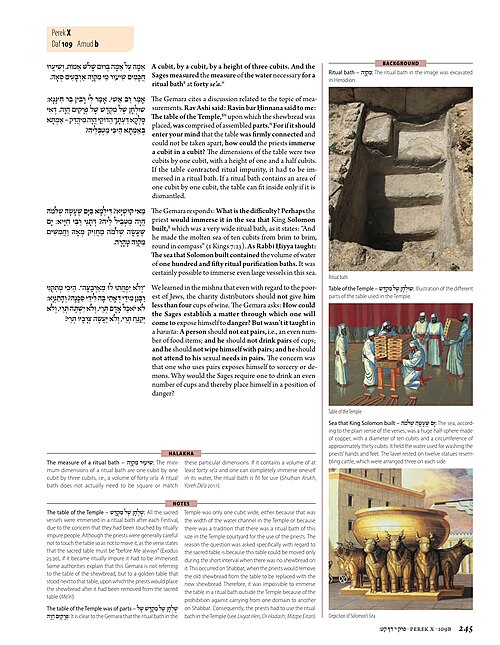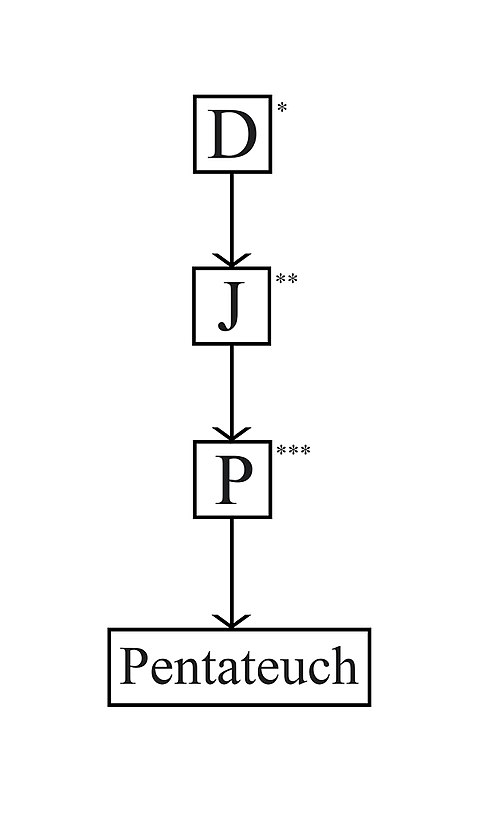Talmudnoun
The body of the Jewish civil and canonical law not comprised in the Pentateuch.
Talmudnoun
the collection of ancient rabbinic writings on Jewish law and tradition (the Mishna and the Gemara) that constitute the basis of religious authority in Orthodox Judaism
Talmud
The Talmud (; Hebrew: תַּלְמוּד Tálmūḏ) is the central text of Rabbinic Judaism and the primary source of Jewish religious law (halakha) and Jewish theology. Until the advent of modernity, in nearly all Jewish communities, the Talmud was the centerpiece of Jewish cultural life and was foundational to , serving also as of Jews.The term normally refers to the collection of writings named specifically the Babylonian Talmud (Talmud Bavli), although there is also an earlier collection known as the Jerusalem Talmud (Talmud Yerushalmi).
Torahnoun
A law; a precept.
Torahnoun
Divine instruction; revelation.
Torahnoun
The Pentateuch or "Law of Moses."
Torahnoun
the whole body of the Jewish sacred writings and tradition including the oral tradition
Torahnoun
the first of three divisions of the Hebrew Scriptures comprising the first five books of the Hebrew Bible considered as a unit
Torahnoun
(Judaism) the scroll of parchment on which the first five books of the Hebrew Scripture is written; is used in a synagogue during services
Torah
Torah (; Hebrew: תּוֹרָה, , or ) has a range of meanings. It can most specifically mean the first five books (Pentateuch or Five Books of Moses) of the Hebrew Bible, namely (in their commonly used names) Genesis, Exodus, Leviticus, Numbers and Deuteronomy.


































